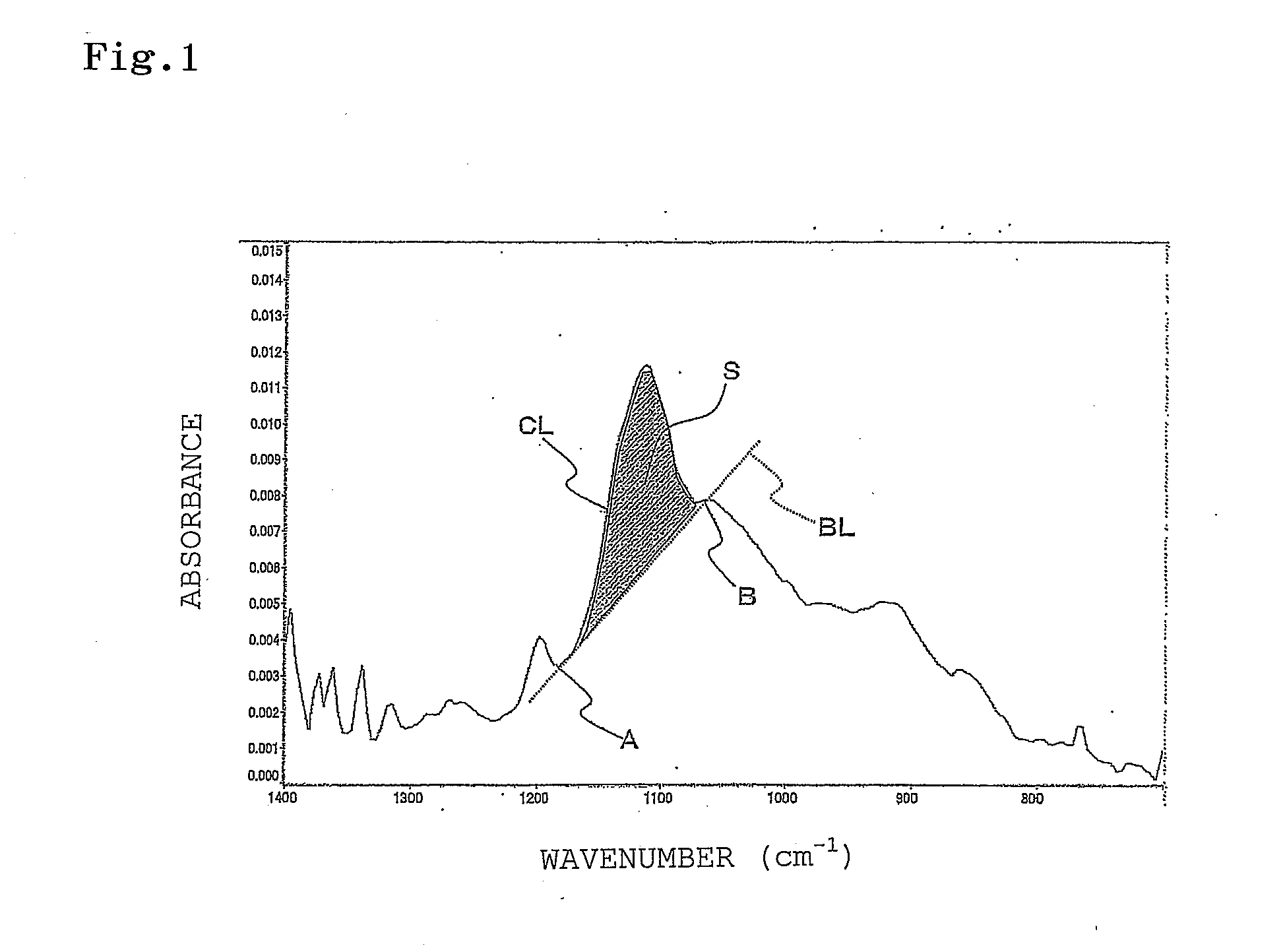Method for forming a laminate
- Summary
- Abstract
- Description
- Claims
- Application Information
AI Technical Summary
Benefits of technology
Problems solved by technology
Method used
Image
Examples
example 1
Preparation of an Aqueous Silane Coupling Agent Solution
[0040]2-(3,4-Epoxycyclohexyl)ethyltrimethoxysilane (silane coupling agent) was dissolved in ion exchange water to yield an aqueous silane coupling agent solution (concentration: 1.0% by weight) to be used in Example 1.
[0041](Formation of a Silane Coupling Agent Coating)
[0042]As a test substrate, prepared was an electrolytic copper foil piece (product name: 3EC-III, manufactured by Mitsui Mining & Smelting Co., Ltd., thickness: 35 μm) cut into a size of 100 mm×100 mm. This was immersed in a 10% by weight sulfuric acid solution for 30 seconds to clean the copper foil piece surfaces. The test substrate was then rinsed with water and dried. Next, this test substrate was subjected to immersion swinging treatment (at 30° C. for 30 seconds) with a substituting tin-plating solution (T-9900) manufactured by Mec Co., Ltd., and then rinsed with water to form a tin-plating treatment layer on each surface of the copper foil piece. Just ther...
example 2
[0045]An evaluation was made in the same way as in Example 1 except that: a measurement was neither made just after the preparation nor after 30 to 90 minutes from the stirring; without making the complete exchange after the continuous use for 4 weeks, the temperature and the time for pre-drying the applied film were changed to “80° C. and 40 seconds”, respectively; and afterwards, the continuous use under the pre-drying conditions (temperature and time) was performed. The results are shown in Table 1.
example 3
[0046]An evaluation was made in the same way as in Example 1 except that: a measurement was neither made just after the preparation nor after 30 to 90 minutes from the stirring; without making the complete exchange after the continuous use for 4 weeks, the temperature and the time for pre-drying the applied film were changed to “80° C. and 20 seconds”, respectively; and afterwards, the continuous use under the pre-drying conditions (temperature and time) was performed. The results are shown in Table 1.
PUM
| Property | Measurement | Unit |
|---|---|---|
| Fraction | aaaaa | aaaaa |
| Fraction | aaaaa | aaaaa |
| Fraction | aaaaa | aaaaa |
Abstract
Description
Claims
Application Information
 Login to View More
Login to View More - R&D
- Intellectual Property
- Life Sciences
- Materials
- Tech Scout
- Unparalleled Data Quality
- Higher Quality Content
- 60% Fewer Hallucinations
Browse by: Latest US Patents, China's latest patents, Technical Efficacy Thesaurus, Application Domain, Technology Topic, Popular Technical Reports.
© 2025 PatSnap. All rights reserved.Legal|Privacy policy|Modern Slavery Act Transparency Statement|Sitemap|About US| Contact US: help@patsnap.com

